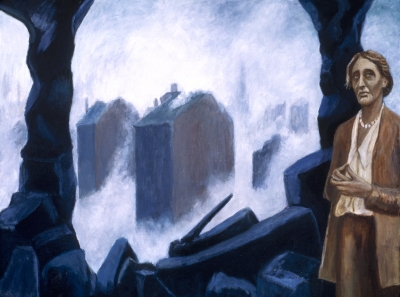 For
Keats lived up the lane in a little white house behind wooden palings. Nothing has been much changed since his
day. But as we enter the house in which
Keats lived, some mournful shadow seems to fall across the garden. A tree has fallen and lies propped, Waving branches cast their shadows up and
down over the flat white walls of the house.
Here, for all the gaiety and serenity of the neighborhood, the
nightingale sang; here, if anywhere, fever and anquish had their dwelling and
paced this little green plot oppressed with the sense of quick-coming death and
the shortness of life and the passion of love and its misery.
For
Keats lived up the lane in a little white house behind wooden palings. Nothing has been much changed since his
day. But as we enter the house in which
Keats lived, some mournful shadow seems to fall across the garden. A tree has fallen and lies propped, Waving branches cast their shadows up and
down over the flat white walls of the house.
Here, for all the gaiety and serenity of the neighborhood, the
nightingale sang; here, if anywhere, fever and anquish had their dwelling and
paced this little green plot oppressed with the sense of quick-coming death and
the shortness of life and the passion of love and its misery.
The London Scene (27)
On September 30, 1907, the 25-year old Virginia Stephens began adult education at Morley College with a lecture on Keats (L1 313)




























